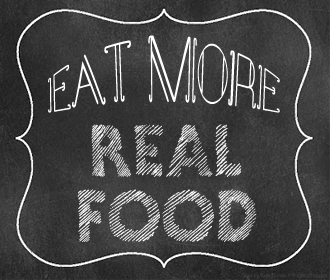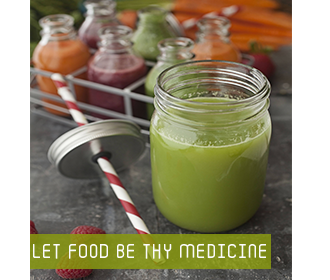As awful as it sounds, the reality for many kids today, is one where they would feather be sick than not have friends. They should not have to make a choice like this, but a lack of awareness, from both youth and adults, create this exact reality for many of our youth. Personal experience was my first discovery into this sad truth, and I see it time and time again.
What many do not realize is that allergies come in many varieties, some less obvious than others. For me, just being in a bakery, in the presence of those glossy egg-washed loaves of bread and the chocolate eclairs that look so delicious, causes me extreme itchiness. My skin breaks out into a rash with little blisters.While this is not life threatening, is certainly far from pleasant, but as an adult this easy enough to avoid.
Allergies definitely are not fun, but they’re certainly a lot easier to handle as adults. The craving for certain foods and trying to replace those old favorites (tortellini being one for myself) seems like the hardest part.
However, there’s a really important aspect that is completely over-looked by most: The social impact.
When I was 17, I was diagnosed with celiac disease. I was so severely malnourished that I was the palest person in the entire high school. I was sleeping somewhere around sixteen hours a day (including in class). I was sickly and very thin. So by the time I got my biopsy confirming the diagnosis, an extremely severe case, I felt immense relief. Diet was something I could control. It really didn’t bother me when my friends left at lunch or I couldn’t eat most food at parties: I was just so happy to feel better.
Another girl I knew however, had a much different experience after diagnosis, and it was far from relief. Sydney* was also diagnosed celiac, but at a younger age than I was. At only 14 years old, she was having hormonal issues, her skin lacked that youthful, healthy flush, despite being an athlete. And more importantly, she wasn’t growing: she very small for her age.
One day I saw her in the hallway eating a blueberry muffin, laughing with her friends. I approached her and inquired as to why she was eating gluten, knowing she would get very sick as a result. She was immediately defensive and said that it was fine, her friends smiling with that mixture of derision and sympathy that only fourteen-year-olds seem to have. I pulled Sydney aside and discussed her current health issues, all of which were directly linked to her eating gluten. Her cheeks flushed and she responded:
“I’d rather be sick and have friends.”
The point of this story is that while an allergy can be a tough for an adult, allergies for adolescents can be devastating! I am incredibly thankful I wasn’t diagnosed before the age of 17, purely due to the social implications. I had symptoms of celiac my entire life, but I didn’t start becoming really sick until I was around Sydney’s age. I covered the black circles under my eyes with heavy make up, I dyed my hair several different colours to compensate for severe paleness, and I blamed my lack of desire to participate in gym class on apathy and hatred towards team sports, not on barely having the energy to get out of bed every day. I even gorged on candy every afternoon to combat extreme fatigue, so I could stay awake for my last class.
In short, I ‘dealt’ with it, but it had severe impacts on my health. I could totally understand Sydney’s predicament, just wanting to be accepted, to have friends and to be a part of life…the very reasons I took such measures to manage my life each day.
We hear about common allergies and simple symptoms all the time, but we don’t hear about how allergies affect kids on a psychological level.
- On TV shows targeted to pre-teens, it’s always the socially inept, weird kid that has allergies, never the popular kids.
- Schools today, often isolate children in the cafeteria to ‘allergy-free’ tables due to potential legal and safety concerns, forgetting that making a sixth-grader sit with a first-grader can be very awkward for both.
- Sports teams “treat” players or “celebrate” successes with ice cream or pizza…leaving the child with and allergy to choose between feeling left out or becoming sick.
- And parents themselves have a huge impact: I recall birthday parties where certain kids couldn’t eat birthday cake or pizza, munching on something homemade in the corner with the helicopter parent keeping a watchful eye, pointing out that they couldn’t eat that or that.
Children are incredibly sensitive: they are left having to choose between wanting to fit in, and participate in the fun or staying healthy. This is very, very difficult, and far more impactful than the vast majority of adults realize…We actually put these kids in harms way, with the simple lack of awareness around allergies!
So what can parents do about it, to help lessen the emotional impact on their children?
- First and foremost, get to know your kids friends. Find out about their allergies, and what their parents serve instead…Try some of these alternatives at your own birthday or team parties. Make the alternatives available to everyone, nit just the kids with allergies.
- If it’s your child with a new allergy, allow the child/teenager to mourn the loss of the allergenic food. Especially when they have to alter a large part of their diet, this may feel particularly painful. Try to focus on the ‘can’ have vs. the ‘can’t’ have. For example, going gluten-free I began trying new vegetables like bok choy and fennel, as well as new grains like millet and quinoa. Focusing on the ‘can’ works well as a coping mechanism.
- Teach your children how to handle social events so that they feel more in control of their allergies. If they fight, point out how they feel better on certain foods rather than others.
- For events like birthday parties or team events, it is especially important with younger kids to help them feel as included as possible. Ask what will be on the menu and try and replicate an allergy-friendly version of it: it may not always be the healthiest but it’s a lot better to have that dairy-free cupcake then be left out of having birthday cake completely.
- Create awareness! Educate yourself, your child, other parents, teachers. The more people that understand the allergy and how it’s not “just” about needing different food can help keep everyone a lot safer.
- In the case of life-threatening allergies, anxiety is a common issue. This can be alleviated by explaining to your child how he or she can take control and be safe in all situations. Talk with teachers about projects where they may be handling food to make sure it’s as safe as possible.
- Encourage them to cook. Getting kids involved in the kitchen is the best way to keep your child safe, and it’s a skill that they’ll greatly benefit from as adults.
- Get them in the habit of being prepared. If they need an Epi-Pen, make sure they have it with them. Make sure they have safe snacks that are easily accessible for on-the-go. If they’re teenagers that are only interested in going out for lunch with their friends, remind them that it’s not so much the eating out as it is cruising around in first cars and talking. Most people will be understanding and not mind.
- Check out some of the great resources out there. For example, Food Allergy Research and Education (FARE) has some great tips on how to handle allergies anywhere from restaurants to summer camp.
- Contact us for more ideas on recipes, tips and ideas for working with allergies!
Allergies can be very difficult to deal with, but with some understanding they can be manageable and make a child not feel as left out, awkward, or ‘different’ as they think. In fact, it can be a great gift, with a shift in perspective and with a little help from those who have been down this road as well.
(*name has been changed).










